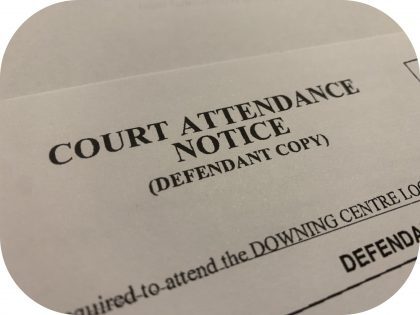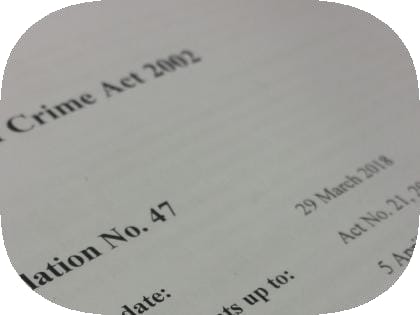Proceeds of Crime – S 18 Restraining Orders
0 CommentsRestraining Orders relating to people suspected of committing serious offences – s 18
This Restraining Order allows the restraint of property of a person whom it is suspected has committed a serious offence.[1] The fundamental difference between s18 and s 17 Restraining Orders is that s 17 applies to indictable offences, whereas s 18 applies to serious offences. Whether an offence is a serious offence or not depends on the conduct constituting the said offence/s and in some circumstances the financial amounts related to the criminal conduct. The conduct and/or financial amounts relating to the conduct will need to be compared to the definition of ‘serious offence’ in section 338 of the Proceeds of Crime Act 2002 (Cth), to see if it meets that definition.
The required elements for a successful s 18 Restraining Order are:
- The application is heard before a court with proceeds jurisdiction;
- A proceeds of crime authority applies for the order;
- There are reasonable grounds to suspect that a person has committed a serious offence, and the court is satisfied that the authorised officer who made the affidavit holds the suspicion stated in the affidavit on reasonable grounds;
- Affidavit requirements of the authorised officer are met;[2]
The property in question can either be specified property or all property of the suspect.[3] The order can specify that the Restraining Order covers property that is acquired by the suspect after the court makes the order.[4]
[1] Serious Offence is defined in s 338 Proceeds of Crime Act 2002 (Cth).
[2] See S 18(3) Proceeds of Crime Act 2002 (Cth).
[3] S 18(2)(a) Proceeds of Crime Act 2002 (Cth).
[4] S 18(6) Proceeds of Crime Act 2002 (Cth).
About Post Author
* Information contained in this article is of a general nature only and should not be relied upon as concise legal advice.
Please contact for legal advice tailored to your situation. *



![Case review: R v Mauger [2012] NSWCCA 51](https://walkercriminallawyer.com.au/wp-content/uploads/2024/10/conviction-1-420x269.webp)






































